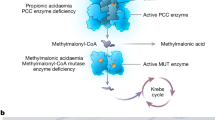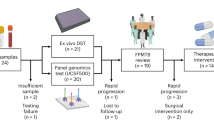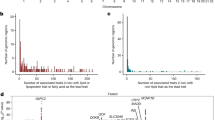Abstract
Genetic variability of CYP2C19 may affect safety or efficacy of many clinically important medications as outlined in the clinical pharmacogenetics implementation consortium (CPIC) dosing guidelines. To determine the predictive prevalence of high-risk phenotypes due to CYP2C19 genetic variants collectively in the world population and to establish a correlation how the identified high-risk phenotypes may affect safety or effectiveness of drugs, this study was conducted. Frequency of CYP2C19*2, *3 and *17 alleles were obtained from 1000 Genomes project Phase III in line with Fort Lauderdale principles. Phenotypes were assigned using international standardized consensus terms based on the carrier of characteristics alleles. Association of predicted high-risk phenotypes with the safety or effectiveness of medications was gained from CPIC dosing guidelines. Ultrarapid and poor metabolizers were considered as being as high-risk phenotypes for at least ten clinically important medications. Meta-analysis of the prevalence of high-risk phenotypes showed that it was statistically significant (p<0.0001) in different ethnic groups with pooled prevalence of 27.4% (95% CI 18–37%). The present study suggests that African (37.2; 95% CI 34–41%) and European (35.4; 95% CI 31–40%) population are being at particularly higher risk of either sub therapeutic drug responses or toxicities due to combined effects of CYP2C19*2, *3 and *17 variants. Large scale clinical studies are warranted to assess clinical outcomes of these medications considering CYP2C19 pharmacogenomics effects.
This is a preview of subscription content, access via your institution
Access options
Subscribe to this journal
Receive 6 print issues and online access
$259.00 per year
only $43.17 per issue
Buy this article
- Purchase on Springer Link
- Instant access to full article PDF
Prices may be subject to local taxes which are calculated during checkout






Similar content being viewed by others
Data availability
The datasets generated during and/or analysed during this current study are available in the 1000 Genomes data repository (https://www.internationalgenome.org/).
References
Collins FS, Varmus H. A new initiative on precision medicine. N Engl J Med. 2015;372:793–5.
Ashley EA. Towards precision medicine. Nat Rev Genet. 2016;17:507–22.
Preissner SC, Hoffmann MF, Preissner R, Dunkel M, Gewiess A, Preissner S. Polymorphic cytochrome P450 enzymes (CYPs) and their role in personalized therapy. PLoS ONE. 2013;8. https://doi.org/10.1371/journal.pone.0082562.
Ahmed S, Zhou Z, Zhou J, Chen SQ. Pharmacogenomics of drug metabolizing enzymes and transporters: relevance to precision medicine. Genom Proteom Bioinforma. 2016;14:298–313.
Zanger UM, Schwab M. Cytochrome P450 enzymes in drug metabolism: regulation of gene expression, enzyme activities, and impact of genetic variation. Pharmacol Ther. 2013;138:103–41.
Scott SA, Sangkuhl K, Stein CM, Hulot JS, Mega JL, Roden DM, et al. Clinical pharmacogenetics implementation consortium guidelines for CYP2C19 genotype and clopidogrel therapy: 2013 update. Clin Pharmacol Ther. 2013;94:317–23.
Hicks JK, Bishop JR, Sangkuhl K, Muller DJ, Ji Y, Leckband SG, et al. Clinical Pharmacogenetics Implementation Consortium (CPIC) guideline for CYP2D6 and CYP2C19 genotypes and dosing of selective serotonin reuptake inhibitors. Clin Pharmacol Ther. 2015;98:127–34.
Hicks JK, Sangkuhl K, Swen JJ, Ellingrod VL, Müller DJ, Shimoda K, et al. Clinical pharmacogenetics implementation consortium guideline (CPIC) for CYP2D6 and CYP2C19 genotypes and dosing of tricyclic antidepressants: 2016 update. Clin Pharmacol Ther. 2017;102:37–44.
Moriyama B, Obeng AO, Barbarino J, Penzak SR, Henning SA, Scott SA, et al. Clinical Pharmacogenetics Implementation Consortium (CPIC) Guidelines for CYP2C19 and Voriconazole Therapy. Clin Pharmacol Ther. 2017;102:45–51.
Voora D, Ginsburg GS. Clinical application of cardiovascular pharmacogenetics. J Am Coll Cardiol. 2012;60:9–20.
Mega JL, Simon T, Collet JP, Anderson JL, Antman EM, Bliden K, et al. Reduced-function CYP2C19 genotype and risk of adverse clinical outcomes among patients treated with clopidogrel predominantly for PCI: a meta-analysis. JAMA - J Am Med Assoc. 2010;304:1821–30.
Xi Z, Fang F, Wang J, AlHelal J, Zhou Y, Liu W. CYP2C19 genotype and adverse cardiovascular outcomes after stent implantation in clopidogrel-treated Asian populations: a systematic review and meta-analysis. Platelets. 2019;30:229–40.
Huang B, Cui DJ, Ren Y, Han B, Yang DP, Zhao X. Effect of cytochrome P450 2C19*17 allelic variant on cardiovascular and cerebrovascular outcomes in clopidogrel-treated patients: a systematic review and meta-analysis. J Res Med Sci. 2017;22. https://doi.org/10.4103/jrms.JRMS_590_16.
Zhou Y, Ingelman-Sundberg M, Lauschke VM. Worldwide Distribution of Cytochrome P450 Alleles: a meta-analysis of population-scale sequencing projects. Clin Pharmacol Ther. 2017;102:688–700.
Mirzaev KB, Zelenskaya EM, Barbarash OL, Ganyukov VI, Apartsin KA, Saraeva NO, et al. CYP2C19 polymorphism frequency in Russian patients in central Russia and Siberia with acute coronary syndrome. Pharmgenom Pers Med. 2017;10:107–14.
Hashemizadeh Z, Malek-Hosseini SA, Badiee P. Prevalence of CYP2C19 genetic polymorphism among normal people and patients with hepatic diseases. Int J Organ Transplant Med. 2018;9:27–33.
Sudmant PH, Rausch T, Gardner EJ, Handsaker RE, Abyzov A, Huddleston J, et al. An integrated map of structural variation in 2,504 human genomes. Nature. 2015;526:75–81.
Auton A, Abecasis GR, Altshuler DM, Durbin RM, Bentley DR, Chakravarti A, et al. A global reference for human genetic variation. Nature. 2015;526:68–74.
Caudle KE, Dunnenberger HM, Freimuth RR, Peterson JF, Burlison JD, Whirl-Carrillo M, et al. Standardizing terms for clinical pharmacogenetic test results: consensus terms from the Clinical Pharmacogenetics Implementation Consortium (CPIC). Genet Med. 2017;19:215–23.
Van Driest SL, Shi Y, Bowton E, Schildcrout J, Peterson J, Pulley J, et al. Clinically actionable genotypes among 10,000 patients with preemptive pharmacogenomic testing. Clin Pharmacol Ther. 2014;95:423–31.
Relling MV, Klein TE. CPIC: Clinical pharmacogenetics implementation consortium of the pharmacogenomics research network. Clin Pharmacol Ther. 2011;89:464–7.
Barbarino JM, Whirl-Carrillo M, Altman RB, Klein TE. PharmGKB: A worldwide resource for pharmacogenomic information. Wiley Interdiscip Rev Syst Biol Med. 2018;10:e1417.
PharmGKB. CYP2C19 clinical annotations. 2020. https://www.pharmgkb.org/gene/PA124/clinicalAnnotation (accessed 28 Feb 2020).
PharmGKB. Drug Label Information and Legend. 2020.https://www.pharmgkb.org/ (accessed 15 Jun 2019).
Zheng L, Yang C, Xiang L, Hao Z. Genotype-guided antiplatelet therapy compared with conventional therapy for patients with acute coronary syndromes: a systematic review and meta-analysis. Biomarkers. 2019;24:517–23.
Sorich MJ, Rowland A, McKinnon RA, Wiese MD. CYP2C19 genotype has a greater effect on adverse cardiovascular outcomes following percutaneous coronary intervention and in Asian populations treated with clopidogrel: a meta-analysis. Circ Cardiovasc Genet. 2014;7:895–902.
Liu J, Qin L, Xi S, Tong W, Yuan M, Peng L, et al. Genotype-guided personalization of antiplatelet treatment: a meta-analysis of patients with ACS or undergoing PCI. Thromb Res. 2019;179:87–94.
Biswas M, Kali MSK, Biswas TK, Ibrahim B. Risk of major adverse cardiovascular events of CYP2C19 loss-of-function genotype guided prasugrel/ticagrelor vs clopidogrel therapy for acute coronary syndrome patients undergoing percutaneous coronary intervention: a meta-analysis. Platelets. 2020. https://doi.org/10.1080/09537104.2020.1792871.
Tang XF, Zhang JH, Wang J, Han YL, Xu B, Qiao S, Bin, et al. Effects of coexisting polymorphisms of CYP2C19 and P2Y12 on clopidogrel responsiveness and clinical outcome in patients with acute coronary syndromes undergoing stent-based coronary intervention. Chin Med J (Engl). 2013;126:1069–75.
Winter MP, Grove EL, De Caterina R, Gorog DA, Ahrens I, Geisler T, et al. Advocating cardiovascular precision medicine with P2Y12 receptor inhibitors. Eur Hear J - Cardiovasc Pharmacother. 2017;3:221–34.
Xiao FY, Luo JQ, Liu M, Chen BL, Cao S, Liu ZQ et al. Effect of carboxylesterase 1 S75N on clopidogrel therapy among acute coronary syndrome patients. Sci Rep. 2017;7. https://doi.org/10.1038/s41598-017-07736-1.
Lewis JP, Backman JD, Reny J-L, Bergmeijer TO, Mitchell BD, Ritchie MD et al. Pharmacogenomic Polygenic Response Score Predicts Ischemic Events and Cardiovascular Mortality in Clopidogrel-Treated Patients. Eur Hear J - Cardiovasc Pharmacother. 2019. https://doi.org/10.1093/ehjcvp/pvz045.
Author information
Authors and Affiliations
Corresponding author
Ethics declarations
Conflict of interest
The author declares no conflict of interest.
Additional information
Publisher’s note Springer Nature remains neutral with regard to jurisdictional claims in published maps and institutional affiliations.
Rights and permissions
About this article
Cite this article
Biswas, M. Global distribution of CYP2C19 risk phenotypes affecting safety and effectiveness of medications. Pharmacogenomics J 21, 190–199 (2021). https://doi.org/10.1038/s41397-020-00196-3
Received:
Revised:
Accepted:
Published:
Issue Date:
DOI: https://doi.org/10.1038/s41397-020-00196-3
This article is cited by
-
PBPK modeling to predict the pharmacokinetics of pantoprazole in different CYP2C19 genotypes
Archives of Pharmacal Research (2024)
-
CYP2C19 gene polymorphism in Ningxia
Pharmacological Reports (2023)



